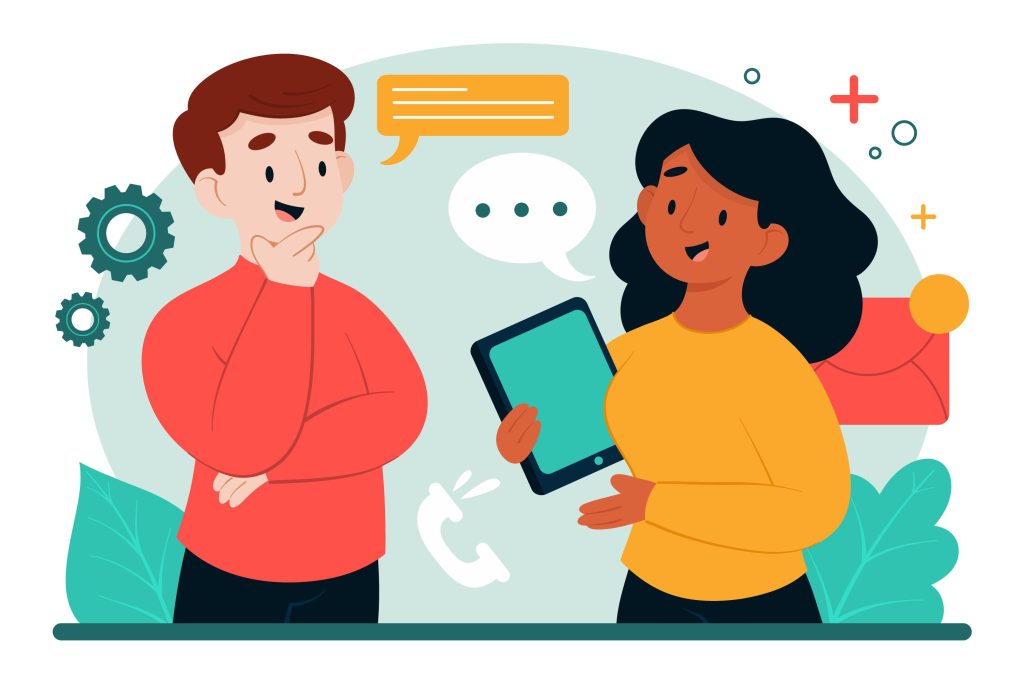Improving Listening Skills for Better Communication: Why It Matters
In today’s fast-paced world, improving listening skills for better communication is vital in both personal and professional settings. Listening is more than hearing—it’s about understanding, connection, and empathy. Whether you’re leading a team or strengthening relationships, developing this skill can transform the way you engage with others.

How Improving Listening Skills Boosts Communication
In the Workplace
Effective listening builds trust, enhances collaboration, and improves team productivity. According to Forbes, active listeners contribute to stronger communication and leadership dynamics—key factors in organisational success.
In Personal Life
PositivePsychology.com notes that improving listening skills for good communication reduces misunderstandings and creates stronger emotional bonds between partners, family members, and friends.
Current Trends Reinforcing the Power of Listening For Better Communication
Empathetic Listening for Better Understanding
Beyond active listening, empathetic listening focuses on understanding emotions and perspectives. As Prezent explains, it fosters deeper connection and emotional safety in conversations.
AI Tools Supporting Communication Growth
The Times of India highlights platforms like Udemy, which use AI simulations to help professionals improve communication and listening through real-time feedback.
Mindful Communication Practices
Mindful communication is gaining popularity. According to SELF, being fully present and avoiding distractions enhances every conversation—key to improving listening skills for good communication.
Steps for Improving Listening Skills Daily
Use these simple yet powerful techniques to become a better listener:
- Make Eye Contact – Shows attentiveness and respect. (Sources: Canopy, Verywell Mind)
- Let People Finish – Avoid interrupting; pause before responding.
- Use Feedback – Nod, paraphrase, or say “I understand” to show engagement.
- Remove Distractions – Keep phones and other noise sources aside.
- Ask Open Questions – Encourage deeper dialogue and clarity.
- Watch Body Language – Pay attention to gestures, posture, and tone. (Source: Harvard Professional Development)
- Practice Empathy – Consider what the speaker is feeling. (Source: Canopy)
Listening and Mental Health
According to Exposure.org.uk, active listening is a core technique in counselling and support roles. It helps people feel safe, seen, and heard. In fact, NCBI research shows that when we feel listened to, the brain’s reward system activates—boosting positive emotions.
How to Make Listening a Habit
Start With Intention
Before engaging in conversations, commit to being fully present.
Reflect and Improve
Afterwards, think about how you listened and what could be better.
Get Feedback
Ask peers or mentors how you can improve your good communication.
Join a Course
Enrol in listening and communication workshops to keep building the habit.
According to Harvard Professional Development, communication always involves at least two people—so listening is just as essential as speaking.
How Listening Supports Mental Health and Connection
When people feel truly listened to, it can alleviate anxiety and loneliness. Exposure.org.uk explains that listening is a critical tool in therapy and conflict resolution. Meanwhile, research from NCBI (PMC) shows that perceived active listening activates the brain’s reward system, reinforcing positive emotional states.
How to Build Listening Habits
- Set Intentions: Enter each conversation with the goal to listen, not just respond.
- Reflect Afterwards: Ask yourself how well you listened and what could improve.
- Ask for Feedback: Trusted peers can help you spot blind spots.
- Take Communication Training: Enrol in listening or communication workshops.
As Harvard Professional Development reminds us: communication always involves more than one party—listening is just as vital as speaking.
Conclusion
Improving listening skills is not just a personal development goal—it’s a cultural shift we need. In workplaces, it builds stronger teams. In relationships, it nurtures understanding. Start practicing today, and you’ll see the benefits unfold in every interaction.
References
- PositivePsychology.com. (n.d.). What is active listening?
- Forbes. (n.d.). The importance of effective listening in the workplace.
- Prezent. (n.d.). What is empathetic listening?
- The Times of India. (n.d.). AI revolutionises communication training.
- SELF. (n.d.). How to have mindful conversations.
- Canopy. (n.d.). Tips for better listening in the workplace and at home.
- Verywell Mind. (n.d.). How to improve your listening skills.
- Colorado State University Global. (n.d.). Active listening for good communication.
- professional.dce.harvard.edu. (n.d.). The power of listening: Tips from Harvard.
- Cleveland Clinic. (n.d.). Active listening: Techniques and benefits.
- Exposure.org.uk. (n.d.). Why active listening matters.
- National Center for Biotechnology Information (NCBI) – PubMed Central. (n.d.). Perceived active listening activates the brain’s reward system.
- Grand Rising Behavioral Health. (n.d.). Communication and mental health.
- Reddit. (n.d.). Threads discussing active listening benefits.









